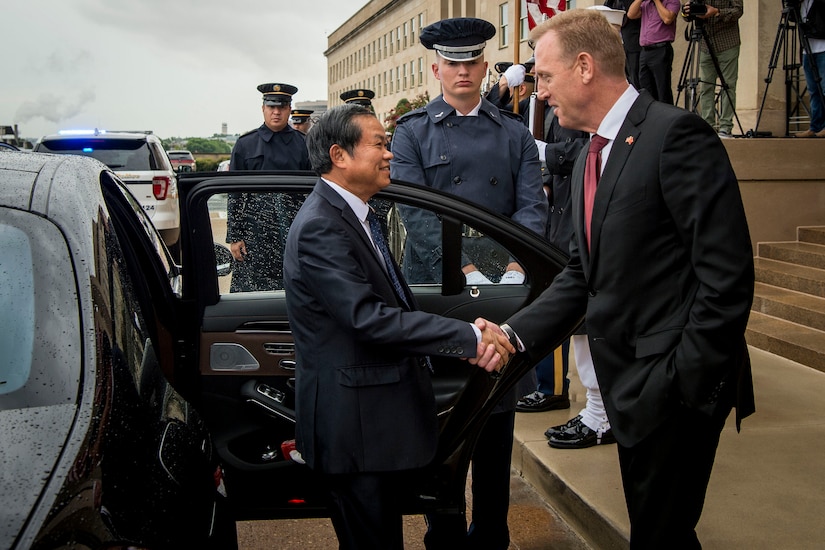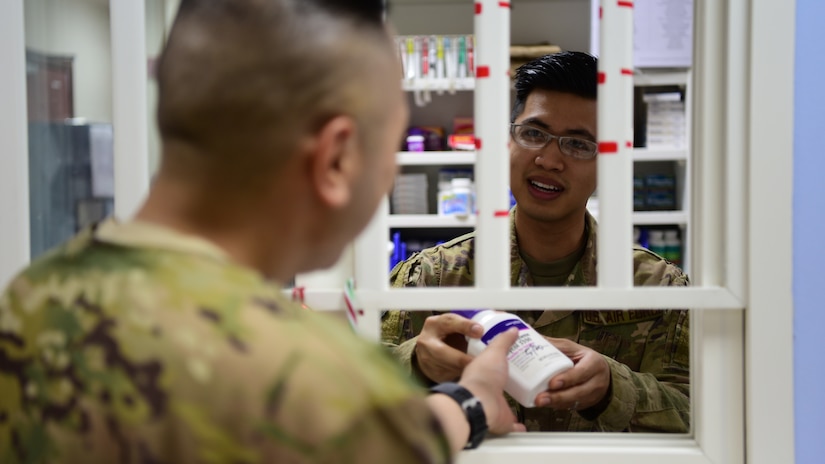By Air Force Staff Sgt. Christopher Stoltz, 386th Air
Expeditionary Wing
SOUTHWEST ASIA -- Three years ago, Air Force Tech. Sgt.
Julian Tayag was closing the pharmacy for the duty day with his wingman when
tragedy nearly struck. Three years later, this event would culminate in his
acceptance into the Interservice Physician Assistant Program.
“My wingman and I were just about to lock the doors for the
day when we noticed a man exhibiting strange signs,” said Tayag, the
noncommissioned officer-in-charge of the 386th Expeditionary Medical Group
pharmacy. “We approached him and asked him if he needed assistance to his car.”
Little did Tayag know, the man would need more than help to
his car. Before the man could answer, he collapsed -- falling lifelessly to the
ground. The two airmen immediately searched for the man’s pulse, but had no
success. Tayag immediately began CPR and instructed his wingman to call for
emergency transport.
Fortunately, he was able to resuscitate the patient and keep
the situation under control until paramedics arrived.
‘A Sign’
“Although I serve in a medical capacity, I have always
wanted to pursue a career in higher levels of healthcare,” Tayag said. “That
event left me feeling deeply rewarded and only furthered this desire. It is
probably the catalyst of why I pushed myself to apply for IPAP. I took it as a
sign.”
The program, which was created as a joint effort in 1996 by
the Air Force, Army and Navy, serves as a bridge for service members to attend
school with the end goal of becoming physician assistants, medical
professionals who are nationally certified and state licensed to practice
medicine with the supervision of a physician.
Based at Joint Base San Antonio-Fort Sam Houston's U.S. Army
Medical Department Center and School, IPAP consists primarily of enlisted
active-duty members who, upon graduation, are commissioned as first lieutenants
into the officer corps of their respective service.
Studies
Tayag will enter the classroom and begin Phase One of IPAP.
This phase includes a rigorous curriculum of 40 courses and 101 semester hours
to be completed in just 16 months. He must complete courses in biochemistry,
microbiology, orthopedics, rheumatology and dermatology.
Upon completion of Phase One, Tayag will receive a
bachelor’s degree, and will immediately move to a master’s-level curriculum,
which will culminate during Phase Two. During this phase, which spans 13
months, he will be assigned to an Air Force or Army hospital to gain
specialized knowledge and experience during a series of clinical rotations.
While the act of saving a man’s life helped shape and fuel
his vision of becoming a physician assistant, Tayag said his vision would have
remained just that if not for a little bit of help.
“I have some amazing people in my life who helped me get
selected,” he said. “I want to thank God, my beautiful wife, my family and
supervisors, mentors, civilian instructors, professors, leadership, peers and coworkers
who always pushed me forward. They helped me overcome my failures and only
served to aid in my successes. My achievements are only possible because of
them.”










